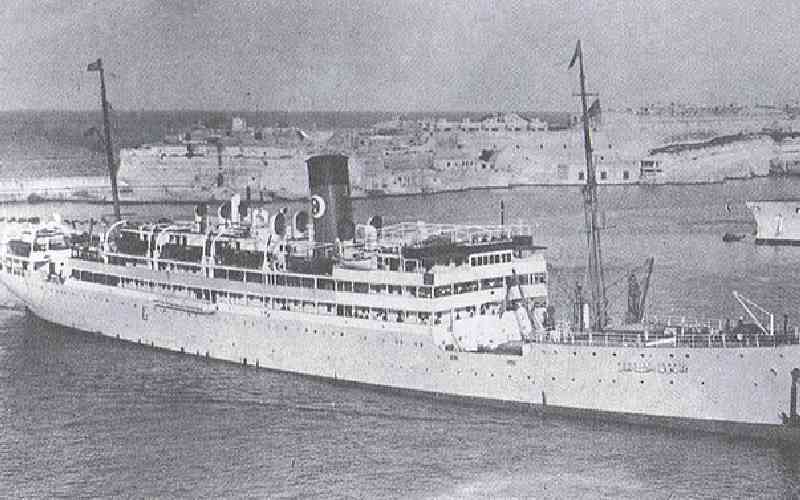×
The Standard e-Paper
Stay Informed, Even Offline

Eighty years ago, the Ismael Khedive, a ship carrying troops from Mombasa to Colombo, Sri Lanka, was struck by Japanese torpedoes and sank near the Maldives, not far from India.
According to online sources, of the 1,511 people aboard the Khedive Ismail, only 208 men and 6 women survived the sinking and subsequent battle. Most of the troops onboard were from East Africa. One survivor is listed as Burugu, alternatively known as Mburugu. Was he your father or grandparent?